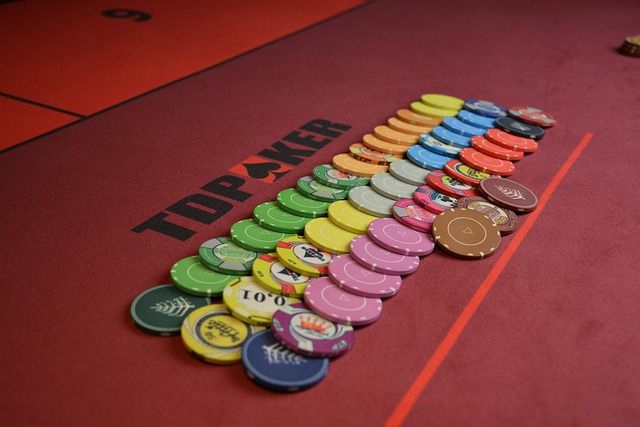Poker rooms thrive as dynamic social hubs, bringing together players from diverse backgrounds who engage in strategic gameplay. Key to a positive experience is understanding and respecting varying room atmospheres, interpreting non-verbal cues, adhering to table manners, and treating dealers with deference. Unwritten etiquette guidelines, such as maintaining calmness, promoting fair play, and communicating clearly, foster harmony and enhance the overall poker room experience. Building a positive reputation through courteous staff, friendly environments, and valued patrons attracts both regular players and new faces, creating a vibrant, honest, and welcoming community.
Welcome to our comprehensive guide on poker room etiquette, designed to help you navigate these vibrant spaces with confidence. Whether you’re a seasoned pro or a novice looking to elevate your game, understanding the unwritten rules of interaction and basic table manners is crucial for successful play. From handling cards and betting strategies to respectful conduct and navigating different game types, this article covers everything you need to know about poker rooms, ensuring you leave a positive impression on players and staff alike.
- Setting the Stage: Understanding Poker Room Dynamics
- – The unwritten rules of poker room interaction
- – Building a positive reputation among players and staff
Setting the Stage: Understanding Poker Room Dynamics

Poker rooms are unique social environments where players from diverse backgrounds gather to test their skills and strategy against one another. Understanding the dynamics of these spaces is crucial for anyone looking to navigate them successfully. The atmosphere in a poker room can range from relaxed and casual to intense and competitive, depending on the game being played and the crowd present. Players must be aware of non-verbal cues, such as body language and tone of voice, as they can reveal a lot about an opponent’s hand or confidence level.
Respect is paramount in any poker room. This includes observing proper table manners, like not disrupting other players and waiting for your turn to act. Additionally, being mindful of the time is essential; arriving late or dawdling during others’ turns can be considered rude. Players should also avoid talking over or interrupting dealers, as this disrupts the flow of play and shows disrespect to the gaming staff.
– The unwritten rules of poker room interaction

In the vibrant landscape of poker rooms, beyond the structured rules of the game, there exists a set of unwritten norms that dictate interaction and behavior. These unspoken etiquette guidelines are crucial for fostering an enjoyable and respectful atmosphere for all players. One of the primary aspects is maintaining a calm and composed demeanor, avoiding verbal or physical displays of frustration, which can disrupt the flow of the game and offend others.
Additionally, poker room etiquette encourages fair play and integrity. Cheating or attempting to influence the outcome through deceitful means is strictly frowned upon. Players are expected to be honest about their hands and respect the decisions of the dealer or floor staff. Effective communication is key; players should clearly announce their actions, like checking, betting, or folding, to ensure transparency and allow others to make informed decisions.
– Building a positive reputation among players and staff

Building a positive reputation is crucial for any poker room, as it attracts both regular players and draws in new faces. A welcoming atmosphere and courteous behavior from staff can go a long way in fostering a friendly environment that encourages frequent visits. Players who feel valued and respected are more likely to become loyal patrons, sharing their experiences positively with peers. This organic marketing is invaluable for any poker room.
Furthermore, treating fellow players with respect and adhering to basic etiquette ensures a smooth gaming experience for all. A good reputation also means adhering to the rules and being honest during games, which forms the backbone of any successful poker room. By cultivating these qualities, individuals can contribute to a vibrant and thriving community within the Poker Rooms, enhancing their overall experience and that of their peers.
Poker rooms thrive on respect, both from players and staff. By understanding and adhering to the unwritten rules of etiquette, you not only enhance your own experience but also contribute to a welcoming atmosphere for everyone. Building a positive reputation is key; treat others as you’d like to be treated, and you’ll foster a vibrant community within these dynamic settings. Remember, poker room etiquette is about fostering an inclusive environment where skill meets strategy in a fair and friendly manner.






